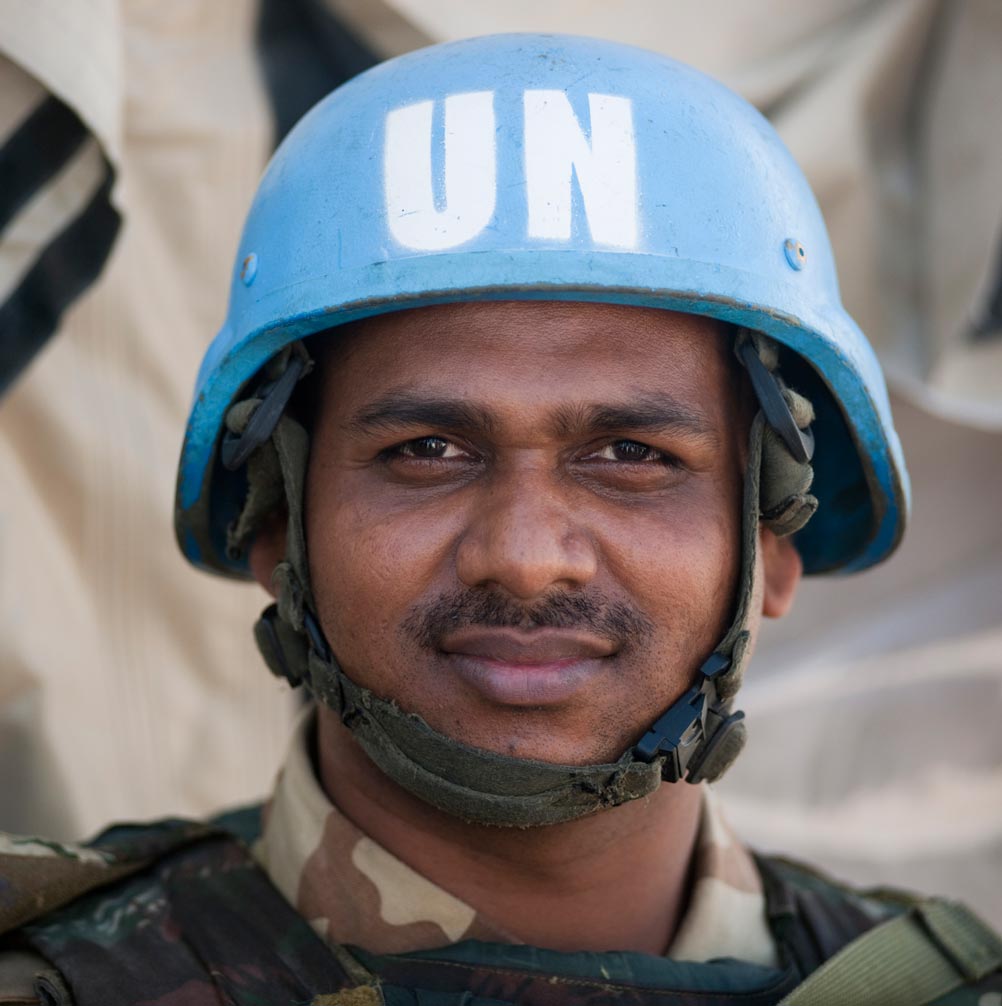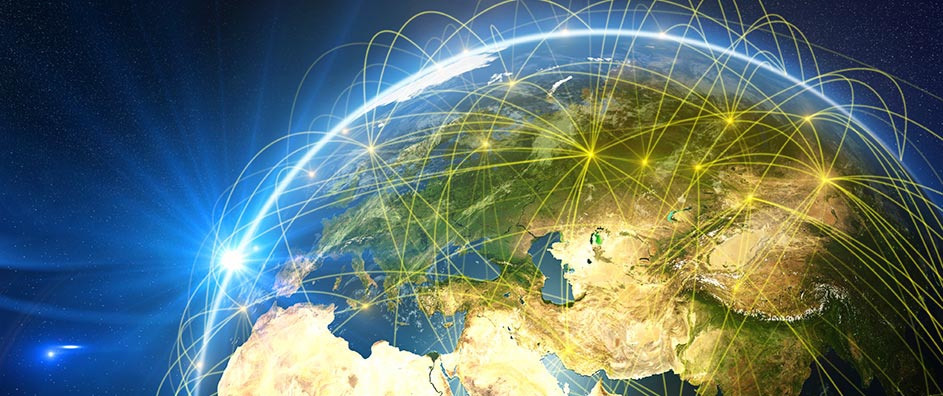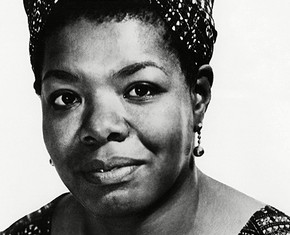The views expressed in our content reflect individual perspectives and do not represent the authoritative views of the Baha'i Faith.
Making a deep, active commitment to the oneness of humanity calls on us all to break down the barriers that separate us from each other.
Have you noticed? No question about it–that process has already started to occur across the world.
Today we have more international travel, more friendships between different peoples, more intermarriage among those of varying nationalities and racial and ethnic groups, more connections between those of different backgrounds, than humanity has ever had before. The world’s old boundaries are falling fast.
 Modern air travel, communication technologies and a vastly-increased level of international trade and commerce make those antiquated boundaries between people increasingly obsolete. Our trade and commerce aren’t only in goods and services, either—they exist also in the world of ideas, of artistic expression, of humanitarian service, of environmental consciousness, of spiritual connections. No previous time in human history has ever given us this vast an opportunity.
Modern air travel, communication technologies and a vastly-increased level of international trade and commerce make those antiquated boundaries between people increasingly obsolete. Our trade and commerce aren’t only in goods and services, either—they exist also in the world of ideas, of artistic expression, of humanitarian service, of environmental consciousness, of spiritual connections. No previous time in human history has ever given us this vast an opportunity.
So how do we respond personally? We can either rise up and answer the call of the oneness of humanity by becoming an active participant in its eventual realization; or we can ignore the obvious, refuse to take part and allow our fractured and fractious world to continue down its destructive path.
Baha’is believe that this choice poses a challenge for everyone:
All men have been created to carry forward an ever-advancing civilization. The Almighty beareth Me witness: To act like the beasts of the field is unworthy of man. Those virtues that befit his dignity are forbearance, mercy, compassion and loving-kindness towards all the peoples and kindreds of the earth. – Baha’u’llah, Gleanings from the Writings of Baha’u’llah, p. 214.
Work for the day of Universal Peace. Strive always that you may be united. Kindness and love in the path of service must be your means. – Abdu’l-Baha, Abdu’l-Baha in London, p. 121.
Baha’u’llah’s statement that all people are “created to carry forward an ever-advancing civilization,” implies that every person has both the right and the responsibility to contribute to this historic and far-reaching, collective enterprise, whose goal is nothing less than the peace, the prosperity and the unity of the entire human family. – Baha’i International Community, 1998.
Achieving the oneness of humanity and the unity of the world’s nations—that “historic and far-reaching collective enterprise” happening now—means first breaking down our own internal barriers. We each have built-in assumptions and prejudices that can prevent us from lovingly associating with and befriending others. Many of us tend to shy away from contact with the unknown, with foreignness, with strangers. When we do that, the Baha’i teachings say, we deprive ourselves of the beauty and richness of other cultures and customs; but even more importantly we retard the progress of the world toward peace. As a primary prerequisite to peace, the Baha’i writings ask us to conquer and then discard our old presumptions and prejudices, and to treat every human being as a friend, not as a stranger:
Let them purify their sight and behold all humankind as leaves and blossoms and fruits of the tree of being. Let them at all times concern themselves with doing a kindly thing for one of their fellows, offering to someone love, consideration, thoughtful help. Let them see no one as their enemy, or as wishing them ill, but think of all humankind as their friends; regarding the alien as an intimate, the stranger as a companion, staying free of prejudice, drawing no lines. – Abdu’l-Baha, Selections from the Writings of Abdu’l-Baha, pp. 1-2.
In the modern world, with its political spheres of influence and its complex conflicts, peace can often seem like a distant, unreachable dream. What can one person do to promote peace? Does marching in protest or refusing to join the military or voting for peaceful political candidates help? Perhaps—but in the most basic sense, our work for peace begins with each other:
…peace must first be established among individuals, until it leadeth in the end to peace among nations. Wherefore, O ye Baha’is, strive ye with all your might to create, through the power of the Word of God, genuine love, spiritual communion and durable bonds among individuals. This is your task. – Abdu’l-Baha, Selections from the Writings of Abdu’l-Baha, p. 246.
Scientists now call this idea “interpersonal contact theory” or “ICT.” Two scientists—Juliana Schroeder and Jane L. Risen from the University of Chicago—recently conducted a four-year study of an ICT program called Seeds of Peace, which they describe as “a program that brings together several hundred teenagers from conflict regions such as Israel and the Palestinian territories for a three-week summer camp in Maine. The teenagers sleep, eat and play games together, and engage in daily sessions to talk about the conflict between their groups and their own experiences with it.”
Schroeder and Risen’s study concluded that the teenagers who took part in Seeds of Peace “reported feeling more positive toward, close with, similar to and trusting of the other side.” But their most striking finding, the researchers said,
…was that regardless of their initial attitudes, the campers who were able to form just one close relationship with someone from the other group were the ones who developed the most positive attitudes toward the other group. Indeed, forming one friendship was as good or better a predictor of future attitudes toward the other group than the total number of friendships that a person formed. – Schroeder/Risen, Group Processes and Intergroup Relations Journal, September, 2014.
The Baha’i teachings say that befriending someone from the “other side” can help show us all that unity between human beings isn’t just a utopian dream.
















Comments
Sign in or create an account
Continue with Googleor